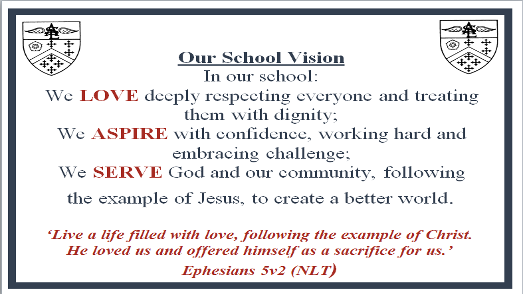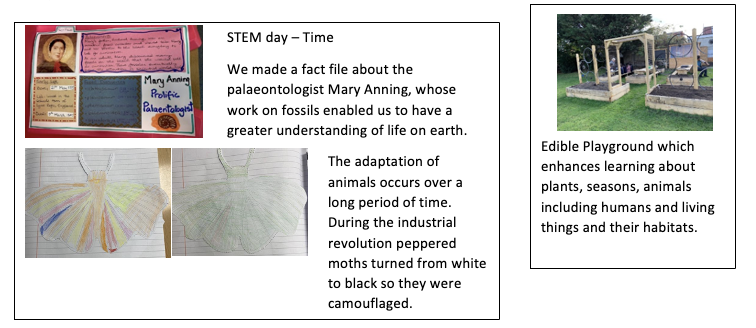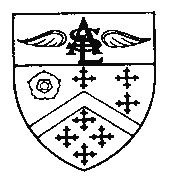Science

Science at Latymer All Saints
Intent
At Latymer All Saints, we believe that the importance of science should be recognised in every aspect of life. To achieve this, we aim to give the high level teaching of science required to inspire the children’s love for asking questions, being curious about the world around them and inspiring them to become the next generation of scientists, doctors, nurses, engineers, inventors etc.
Over the course of their study, the children will become confident in important scientific knowledge as well as using key scientific and enquiry based skills through a range of different investigations.
They will:
- frequently engage in practical activities in and beyond the classroom;
- investigate scientific questions using a range of different enquiry skills such as (observing over time, classifying and sorting, pattern seeking, problem solving, researching and conducting comparative and fair tests);
- develop a knowledge of different scientific topics across all three areas of science (biology, physics and chemistry);
- work scientifically by planning investigations, predicting, carrying out fair tests, measuring and making conclusions;
- collect, analyse and interpret data from a range of different types of investigations;
- think critically about scientific results and evaluate the reliability of their investigation;
- ask and answer questions about the world that equip them with the skills needed to become independent and competent scientists and to make an important impact on the future.
In these pictures you can see year 3 investigating the different conditions that impact plant growth. This builds on from work they have done in EYFS, year 1 and year 2.
Year 5 looking at electrical conductors and insulators building on from previous work on electricity in year 4.
Year 4 studying sound by making string telephones.
Implementation
Our curriculum is a clear and comprehensive scheme of work in line with the National Curriculum where teaching and learning show progression across all key stages within the three strands of Science (biology, chemistry and physics).
Children have access to key vocabulary in order to understand what it means and readily apply it to their written, mathematical and verbal work. Children will use the Kapow Scheme of work as well as hands on resources like the edible playground, microscopes and computing equipment to develop their knowledge and understanding, which is essential to their learning and understanding of working scientifically, when carrying out practical investigations.
Children build on prior knowledge (teachers are expected to know what has been taught previously as well as having a secure understanding of what needs to be taught to ensure repetition and building on prior knowledge are effective) and link ideas together, enabling them to question the world around them and become enquiry based learners.
In the Early Years Foundation Stage pupils explore science through making basic predictions, using their senses and investigating the world around them.
In Key Stage one pupils observe, explore and develop their questions about the seasons, living things, plants, animals, materials and the world around them. They start to think about how to collect evidence to help them test scientific questions, find patterns, classify and group objects, carry out fair tests, research different science topics and work together to solve problems.
In Key Stage 2 children are encouraged to become more independent scientists and come up with their own scientific questions about the world around them. They make detailed observations over time, look for patterns in natural phenomena, classify and group objects, carry out fair tests, research different science topics and work together to solve problems. The children independently identify variables within an investigation and think about which ones to change and which ones to keep the same and then think about what further questions they could investigate from the results they collect.
There are further opportunities to try science at home through FITT (Film Internet Text Trip) homework projects which are completed during each holiday.
Events such as STEM DAY allow all pupils to come off-timetable, providing broader provision and the acquisition and application of knowledge and skills.
The children are also shown how the science they are learning can be used in different careers so that they are inspired to become the scientists of the future.

Please click on the link below to view our science curriculum overview
Impact
When our pupils leave Latymer All Saints, they are able to retain knowledge that is pertinent to science with a real life context; question ideas and reflect on knowledge. They are able to work collaboratively and practically to investigate and experiment and they can explain the process they have taken and reason scientifically.
The approach to science at Latymer All Saints Primary School results in a fun, engaging, high-quality science education, that provides children with the foundations and knowledge for understanding the world.
Children leave knowing the different possibilities for careers in science and are inspired to keep achieving in science, wanting to question how things work and to solve problems using their scientific knowledge. Throughout their time at Latymer All Saints they learn about a range of different scientists from various backgrounds so that all children feel they are scientists and are capable of achieving.

See the Science Progression Map and Scientific Enquiry Progression Map for how science skills develop year on year.
Useful website links:





